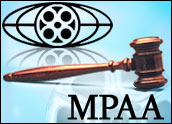
Of all the groups that have hurt the movie studios’ financials through illegal file-sharing and piracy, college students have been the most egregious offenders, the Motion Picture Association of America has long maintained. In fact, it provided statistics two years ago that blamed college students for more than 40 percent of the film industry’s losses.
That figure is a gross overstatement, though, reported The Associated Press — and the MPAA has admitted to the error. College students actually account for 15 percent of its losses, it now says, explaining the discrepancy between the two figures as human error.
Lobbying the Government
The MPAA and its counterpart in the music industry, the Recording Industry Association of America, have justified a heavy-handed legal assault against colleges based in part on the assumption that most of the intellectual property theft affecting their industries occurs on campuses.
Had the MPAA delivered accurate figures, it still seems unlikely that it — and the RIAA — would have refrained from the pursuit of a tough legal strategy against pirates. The two groups persuaded courts to subpoena Internet service providers for the names of account holders who downloaded and uploaded copyrighted content, then sued many of those individuals — some for hundreds of thousands of dollars. When its error became public, the MPAA insisted that 15 percent is still a significant figure.
More worrisome is the legislation that has gained traction in both chambers of Congress: bills that link federal funding for higher education to measures universities would have to take to keep students from using suspect peer-to-peer Web sites. These included the College Opportunity and Affordability Act of 2007 and the Higher Education Reform Act.
The Sunshine Effect?
Whether the new figures will derail the legislation or have any effect on the outcome of a court case remains to be seen.
The adjustment would, at best, provide indirect help to anyone fighting a charge of illegal file-sharing in court, according to Lory Lybeck, a partner at Lybeck Murphy who represents defendants in RIAA cases.
Most people settle charges brought against them for a couple of thousand dollars after they tally up the potential damages the RIAA could win, Lybeck told TechNewsWorld.
“Could I use [the MPAA miscalculation] in court? Probably not directly,” he said. “But it supports what I have always said about the RIAA — that it is willing to state anything to support its campaign of threat and intimidation.”
The RIAA sues about 450 college students a month, Lybeck estimated, based on industry information.
























































Social Media
See all Social Media